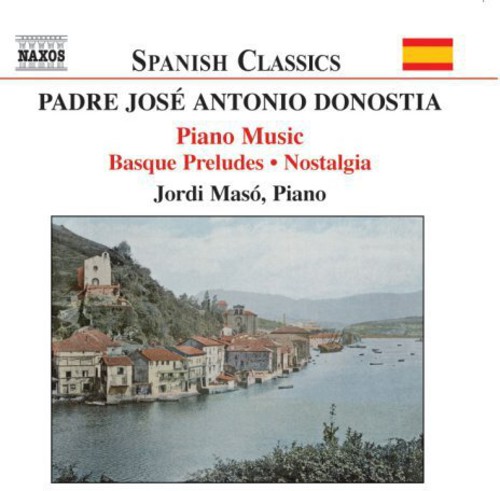Show results for
Deals
- 4K Ultra HD Sale
- Action Sale
- Alternative Rock Sale
- Anime sale
- Award Winners Sale
- Bear Family Sale
- Blu ray Sale
- Blues on Sale
- British Sale
- Classical Music Sale
- Comedy Music Sale
- Comedy Sale
- Country Sale
- Criterion Sale
- Electronic Music sale
- Fantasy Film and TV
- Folk Music Sale
- Hard Rock and Metal Sale
- Horror Sci fi Sale
- Jazz Sale
- Kids and Family Music sale
- Kids and Family Sale
- Metal Sale
- Music Video Sale
- Musicals on Sale
- Mystery Sale
- Naxos Label Sale
- Olive Films Sale
- Page to Screen Sale
- Paramount Sale
- Pop and Power Pop
- Rap and Hip Hop Sale
- Reggae Sale
- Rock and Pop Sale
- Rock Legends
- Soul Music Sale
- TV Sale
- TV Sale
- Vinyl on Sale
- War Films and Westerns on Sale

Piano Music
- Format: CD
- Release Date: 11/16/2004

Piano Music
- Format: CD
- Release Date: 11/16/2004
- Performers: Jordi Masó
- Label: Naxos
- UPC: 747313222827
- Item #: NAX322282
- Genre: Classical
- Release Date: 11/16/2004

Product Notes
Padre Donostia's greatest achievement was to bring prestige to traditional Basque music. He succeeded in finding and conveying it's deeper significance, faithfully and elegantly, as well as in achieving the perfect balance between the assimilation of tradition and the huge influence of his impressionist contemporaries, Ravel and Debussy. At the core of his piano repertoire are the four books of Preludes (1912-16), to which must also be added the Menuet basque (Basque minuet), Andante para una sonata vasca (Andante for a Basque sonata), Herrimina (Nostalgia), Homenaje a J.C. de Arriaga (Tribute to Juan Crisóstomo de Arriaga), Prière plaintive à Notre-Dame de Socorri (Heartfelt Prayer to Our Lady of Socorri), and two original pieces for guitar, Tiento y canción (Tiento and Song) and Vora'l Ter (On the Banks of the Ter). Common to the four books of Preludes is a concern for the strict reproduction of the traditional melodies, which are always allowed to shine through. Padre Donostia's expressive writing rises up above the melody, it's express intention being to describe the text, harmonic backgrounds representing landscapes, rhythmic patterns, impressionistic recitatives, distant music from religious processions and festivities, children's games, and so on, all of which are marked by their simplicity and nostalgic lyricism. Although the works were written within a short time of one another, the later pieces show that Padre Donostia's musical and harmonic idiom was beginning to move away from it's classical roots to become more impressionistic in nature.

